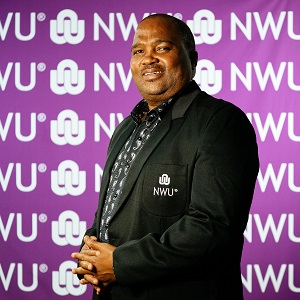Dr Bismark Tyobeka, principal and vice-chancellor of the North-West University (NWU), has been nominated to replace Dr Trevor Dudley as South-Africa’s representative on the Senior Industry Advisory Panel (SIAP) of the Generation IV International Forum (GIF). This forum was created in 2001 as an international body to develop research necessary to ensure the deployment of fourth-generation nuclear systems by 2030.
Dr Bismark, how does it feel to be nominated to serve on the SIAP of the GIF?
Well, I have been associated with the GIF since as far back as almost 15 years ago, during my days as head of Gas-Cooled Reactors at the International Atomic Energy Agency (IAEA), where one of my responsibilities was to coordinate the collaboration between the IAEA, the OECD-NEA and GIF around high-temperature reactor activities. So, it is a great honour for me to be nominated by my government to serve in this very important advisory committee. I look forward to reconnecting with global experts in Generation IV nuclear reactor systems.
What would your goals be if you are elected to the panel?
South Africa is a founder member of the GIF, way back during the days of the Pebble-Bed Modular Reactor Project. It is through that project that some of us ultimately were groomed and nurtured to be the global experts that we are today. My contribution would be to ensure that, as a country, we continue to advise and influence the direction in which nuclear reactor systems – such as those with advanced safety features, sound economics, proliferation-resistant fuels and minimum radioactive waste – can be deployed globally in the future.
Many experts believe that nuclear energy has an unwarranted bad reputation. How would you go about dispelling these myths about nuclear energy?
The truth is that over the years, nuclear power has produced safe and reliable electricity globally. Our country generates almost 6% of its electricity from nuclear power plant units situated at the Koeberg nuclear power station. So, when safely operated and properly regulated, nuclear power supports a sound, secure energy supply.
There are obviously enormous risks associated with nuclear power, such as proliferation risks, environmental risks as well as a risk to human health if nuclear and radioactive substances or materials are not properly regulated. Globally, we have not experienced any of those major lapses, mostly due to robust regulatory systems as well as the IAEA safeguards programmes that ensure that there is proper accounting for all radioactive materials that a member state possesses, and these are inspected regularly by the nuclear watchdog, which is the International Atomic Energy Agency. Of course, nuclear accidents do happen, as we remember very well from the 2011 accident at the Fukushima Daiichi nuclear power plant in Japan, or at the Chernobyl nuclear plant in Ukraine, but investment in advanced technology in nuclear power plants ensures that the likelihood of such accidents happening again gets smaller by the day.

Dr Bismark Tyobeka
